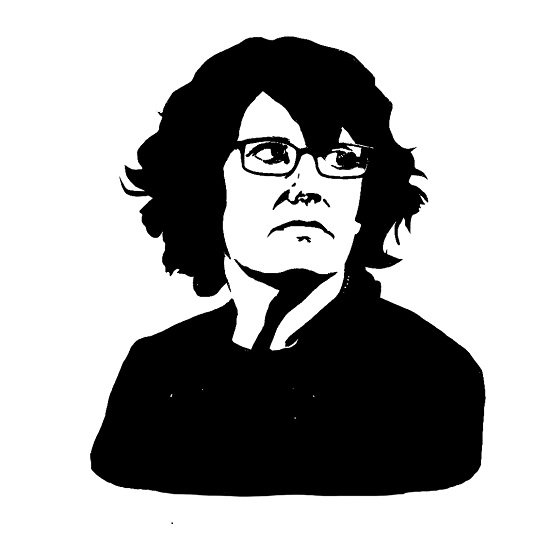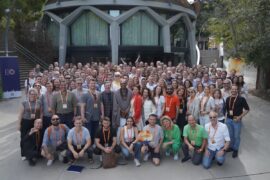The writer Imma Monsó affirmed: “From morning to night, a question is asked repeatedly at the vendors’ stalls: ‘Which book can I give someone who doesn’t like reading?’ A curious and paradoxical question which summarises all the grandeur and misery of this day.”
Imma Monsó (Lleida, 1959) is a writer and has worked as a teacher of foreign languages.
Its trajectory begins in 1996, with the publication of the book of stories Si es no és, Ribera d’Ebre award, and the novel No se sap mai (1996). From these two books she is considered one of the most valuable writers of her literary generation. All this is confirmed in 1998 with the novel Com unes vacances, Prudenci Bertrana award and Cavall Verd-Blai Bonet Narrative award. In 2001, he published the novel Tot un caràcter. Also two books of short stories: Millor que no m’ho expliquis (2003) and Marxem, papà. Aquí no ens hi volen (2004). He has also published an ironic study on the similarities between the Catalan and Japanese people, Hi son però no els veus (2003). He continues his literary production with the novels Un home de paraula (2006), Salambó and Maria Àngels Anglada awards, Una tempesta (2009), La dona veloç (2012), which receives the Ramon Llull award, and L’aniversari (2016). She is recognized with the 2013 National Culture Award.
Much of his work has been translated into Spanish with a very good reception, and has work translated into French, Hungarian, Italian and Dutch.
XAVIER BRU DE SALA
 The writer Xavier Bru de Sala affirmed that “culture and nature, which have always been neglected, are loved in Barcelona for Sant Jordi”.
The writer Xavier Bru de Sala affirmed that “culture and nature, which have always been neglected, are loved in Barcelona for Sant Jordi”.
Xavier Bru de Sala (Barcelona, 1952) is a writer, poet and an outstanding intellectual in the field of Catalan culture.
Graduated in Catalan Philology, he began his literary career in the field of poetry with the publication in 1973 of La fi del fil, Carles Riba Award for poetry in 1972. In 1979 he wrote Fràgil, which years later (2003) reissued with a prologue as a poetics. In addition, he is the author of numerous theatrical adaptations, such as Mar i Cel (1988), by Àngel Guimerà, Cyrano de Bergerac (1987), by Edmond Rostand, or Pygmalion (1997), by Bernard Shaw. In 2007 he published his only novel, Cartes d’uns coneguts a una desconeguda.
As an opinion journalist, he collaborates in various media, such as Avui, La Vanguardia, El Periódico de Catalunya or Catalunya Ràdio. His polemic facet has been accentuated by the publication of essays such as El descrèdit de la literatura (1999) or the two books written to six hands with Julià de Jòdar and Miquel de Palol Fot-li, que som catalans! (2005 – Hit it, that we are catalans!) and Fot-li més que encara som catalans (2006 – Hit it more, because we are still catalans).
Apart from the written work, Xavier Bru de Sala has a significant role in the cultural activity of Catalonia. From 1984 to 1987 he is the literary director of Edicions Proa and from 1988 to 1991 director general of Cultural Promotion of the Catalan Government. In 2009, he held the position of President of the first National Council of Culture and Arts of Catalonia (CoNCA) for a few months.
VALENTÍ PUIG
 The writer Valentí Puig affirmed: “It’s got everything: tradition, public, attention to books, but also over the years we are finding that in addition to the value of the sales, good literature and critical thinking are not the incentive of the day. Who’s reading what?”
The writer Valentí Puig affirmed: “It’s got everything: tradition, public, attention to books, but also over the years we are finding that in addition to the value of the sales, good literature and critical thinking are not the incentive of the day. Who’s reading what?”
Valentí Puig (Mallorca, 1949) is a writer and journalist, both in Catalan and in Spanish. He has recently been awarded the National Prize for Culture and in recent months he has published, as novelties, the novel El bar de l’AVE; the fifth book of their diaries, La bellesa del temps; the poems of Oratges de la memòria; and, again, the Diccionari Pla de Literatura, “a book that is still a great mine”.
He studied Philosophy and Letters at the University of Barcelona. He has published novels, essays, poems, up to thirty books. He has won awards such as Ramon Llull, Josep Pla, the Critics Award and the Sant Joan. Now, lead the quarterly magazine of ideas and culture F.
His work has been selected in the anthologies The origins of desire, Después de la modernidad, Pólwysep w wierszach, Paraula encesa and Las dos hermanas.
He is the author of several essays on international politics, moderationism, Josep Pla, in defense of the imperfect world, the return to the Catholic faith, the future of the monarchy or the moral effects of the crisis of 2008.
RAFAEL VALLBONA
 The writer and journalist Rafael Vallbona affirmed: “Dialogue is the best instrument for overcoming a lack of understanding. And with books and roses, Sant Jordi is the great festival of words which help us converse”.
The writer and journalist Rafael Vallbona affirmed: “Dialogue is the best instrument for overcoming a lack of understanding. And with books and roses, Sant Jordi is the great festival of words which help us converse”.
Rafael Vallbona (Barcelona 1960). Writer and journalist. Author of more than fifty books of all kinds among novels, nonfiction, poems and travel books; some of which have been translated, and others have been awarded, for example, with the Amat Piniella award for La comuna de Puigcerdà (2001) and the Néstor Luján of a historical novel by Forasters (2007); the Ernest Udina award in journalism for Pirineus en venda (2005); the Columna Jove award for Recanvis Luna (1997) and the Ramon Muntaner of a teenagers novel for La balada de JK (2001); the Ferran Canyameres awards of thriller for Tros (20016); Cadaqués award to Rosa Leveroni and Jocs Florals de Barcelona of poetry both for the poetry book Al Raval (1999); and the Sant Joan award of novel for La casa de la frontera (2017).
Regular contributor to the press, radio and television, he is also a professor on journalism at Blanquerna University.
ISABEL-CLARA SIMÓ
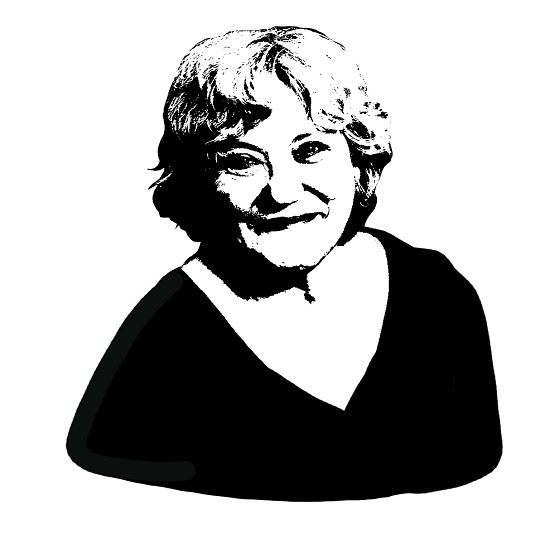 The writer Isabel-Clara Simó affirmed that “Sant Jordi is a fair and therefore a commercial event. However, Sant Jordi is also much more than a commercial event. It’s culture. And everyone envies it.“
The writer Isabel-Clara Simó affirmed that “Sant Jordi is a fair and therefore a commercial event. However, Sant Jordi is also much more than a commercial event. It’s culture. And everyone envies it.“
Isabel-Clara Simó (Alcoi, April 4, 1943) is a writer and journalist. With a degree in philosophy from the University of Valencia, she taught at Bunyol, Figueres and Barcelona, where she studied journalism. Later she was a professor at the Faculty of Translation and Interpretation of the Pompeu Fabra University and received her PhD in Catalan philology. She is a regular contributor to the Catalan press and has collaborated in some collective volume, such as Dona i societat a la Catalunya Actual (1978).
His work, both literary and journalistic, is very marked by the commitment to vindication, especially in the struggle for women’s rights, as well as against social injustices and the defense of Catalan language and Catalan culture. Among the fifty titles he has published, one can mention the narrations (És quan miro que hi veig clar, 1979, Víctor Català award, Alcoi-Nova York, 1987, Spiritual, 1993, Critics Award Serra d’Or, Dones, 1997, Estimats homes (una caricatura), 2001, Angelets, 2004, Homes, 2009, La vida sense ell, 2013; Tota a questa gent, 2014) and the novels: Júlia (1983), Ídols (1985), T’estimo Marta (1986), Els ulls de Clídice (1990), La Nati (1991), La salvatge (1993), Sant Jordi award, El Mossèn (1994), La innocent (1995), València de Literatura award, El professor de música, Crítica dels Escriptors Valencians de narrativa award (1999); El gust amarg de la cervesa (1999), T’imagines la vida sense ell? (2000), Rita! L’home que ensumava dones (2001), Andròmina award, L’home que volava en el trapezi (2002), Adéu-suau (2006), El caníbal (2007), El meu germà Pol (2008), Amor meva (2010, Joanot Martorell award), Un tros de cel (2012), Els invisibles (2013), L’amant de Picasso (2015) and Jonàs (2016).
She is also the author of essay books (En legítima defensa, 2003, Crítica dels Escriptors Valencians award; Adéu Boadella , 2008), (… I Nora obrí la porta, 1990; Còmplices, 2004, La visita, awarded in 2011 with the Ciutat d’Alcoi Theater Prize i published in 2012) and the biographical Els racons de la memòria (2009).
She has been awarded the Cross of Sant Jordi (1999), the Prize of the Association of Periodic Publications in Catalan (2002), the Trajectory Prize of the Book Week in Catalan (2009), the Pompeu Fabra Prize (2009), the Gold Medal of Alcoi (2013), city that also granted her the title of favorite daughter, and the Jaume Fuster award of the AELC to the trajectory (2013). In 2017 he received the Prize of Honor of the Catalan Letters (Premi d’Honor de les Lletres Catalanes).
JULIÀ DE JÒDAR
 The writer Julià de Jòdar affirmed: “For Sant Jordi, the body awakes from the sloth of time; and the fire of the dragon has the heat by nature to give passion and consume the spirit”.
The writer Julià de Jòdar affirmed: “For Sant Jordi, the body awakes from the sloth of time; and the fire of the dragon has the heat by nature to give passion and consume the spirit”.
Julià de Jòdar (Badalona, 1942) is a writer. He is the author of the trilogy L’atzar i les ombres (The fate and the shadows), a panorama of the Catalan proletariat from the 50s to the Spanish democratic transition in last seventies, composed by L’àngel de la segona mort (1997 – The Angel of the Second Death) –Ciutat de Barcelona and Cavall Verd-Blai Bonet awards–, El trànsit de les fades (2001 The traffic of the fairies) –Premi de la Crítica Award– and El metall impur (The impure metal – 2006) –Sant Jordi and Crítica Serra d’Or Awards–. He has also written the novels L’home que va estimar Natàlia Vidal (2003 – The man who loves Natàlia Vidal) –Prudenci Bertrana Award-, Noi, ¿has vist la mare amagada entre les ombres? (2008 – Kid, have you seen the mother hidden in the shadows), La pastoral catalana (2010 – The catalan pastoral) –Carlemany and Crítica Serra d’Or Awards– and El desertor en el camp de batalla (2013 – The Deserter on the Battlefield). Recently, he has published Fot-li al Procés (2017) and Els vulnerables (2018).
He has published the narrative collection Zapata als Encants (1999 – Zapata in the Barcelona’s Encants Market) and has translated novels by Doctorow, Somerset Maugham and Julien Gracq into Catalan and Spanish. With Enric Juliana he writes the play Radiacions (2011 – Radiations), which is adapted for television. He collaborates regularly in various print media. He is coauthor of the political satire writings Fot-li, que som catalans! (2005 – Hit it, tath we are catalans!) and Fot-li més que encara som catalans (2006 – Hit it more, because qe are still catalans), and the political essay Cop de CUP. Viatge a l’ànima i a les arrels de les candidatures d’Unitat Popular (2012).
GEMMA LIENAS
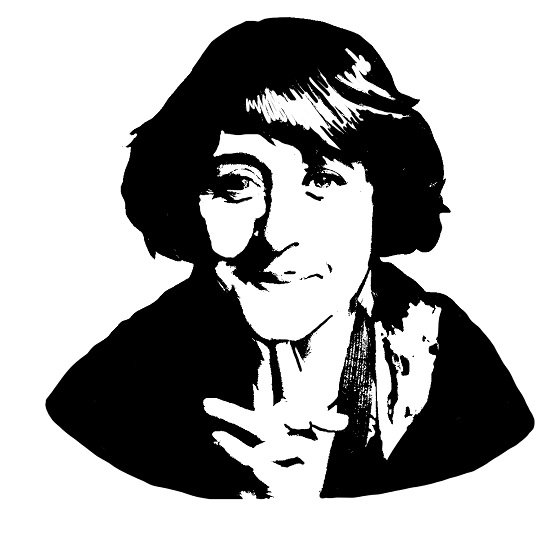 The writer Gemma Lienas affirmed that “Sant Jordi is drop of essential oil of reading”.
The writer Gemma Lienas affirmed that “Sant Jordi is drop of essential oil of reading”.
Gemma Lienas (Barcelona, 1951) has a degree in Philosophy and Letters from the Universitat Autònoma de Barcelona, writer, lecturer and collaborator of several media. It has more than 90 titles published (www.gemmalienas.com), has received several catalan and spanish awards, such as the Ramon Llull of the Catalan Letters and the Andròmina, , and international, as the honorable mention of the IBBY.
His work has been translated into several languages. In 2010 she received, for her role in the Catalan literature of the late twentieth and early twenty-first centuries and for her feminist struggle the Francesc Macià Medal by the Government of Catalonia. In the past and for fifteen years, she was a postgraduate professor at the Universitat de Barcelona and, at the same time, editor of several editorials. She was also a high school and special education teacher for 11 years.
RAFEL NADAL
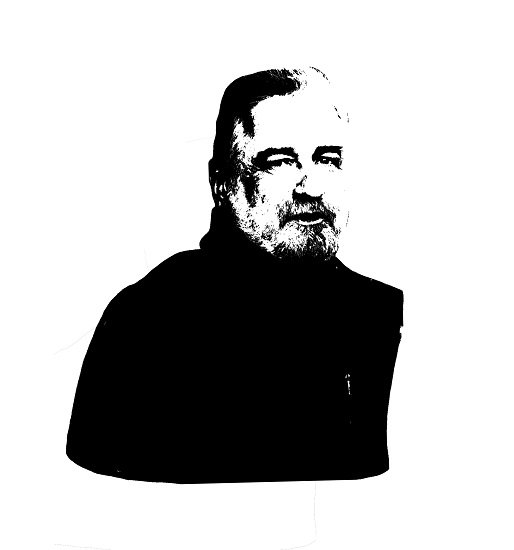 The journalist and Catalan writer Rafel Nadal affirmed that Sant Jordi is “culture, books, flowers, nature, festivity, public space, conversation, questions, answers: civilisation”.
The journalist and Catalan writer Rafel Nadal affirmed that Sant Jordi is “culture, books, flowers, nature, festivity, public space, conversation, questions, answers: civilisation”.
Rafel Nadal i Farreras (Girona, 1954) is a journalist and Catalan writer. Currently writing at La Vanguardia and regularly collaborating on RAC1, TV3 and 8TV. He has been director of El Periódico de Catalunya from May 2006 to February 2010, period during which the newspaper received many awards.
Previously, he has worked in leading newspapers in the country and has held different positions of responsibility in publishing companies and communication groups. As a writer, he came out in 2011 with Els Mandarins, and won the Josep Pla Award for narrative in 2012, and the 2013 Amat-Piniella Prize, with the novel Quan érem feliços (When we were happy) (2012).
In October 2013 he published his novel Quan en dèiem xampany (When we said champagne), which, like the previous one, is about a family saga that lives between Catalonia and French Champagne. In the year 2015 publishes La maledicció dels Palmisano (The curse of Palmisanos). In 2017 he published his latest novel, La senyora Stendhal (Mrs. Stendhal).
 CARE SANTOS
CARE SANTOS
The novelist Care Santos affirmed that “Sant Jordi is the best day of the year. The day that books become for everyone what they are for me: something important that makes life better.”
Care Santos was born in 1970 in Mataro, a city just north of Barcelona. She began writing at 8 years old, and never wanted to be anything but a writer. At 14 years of age she won her first writing competition and at 25, published her first book, a collection of short stories. Since then, she has published six novels, six collections of short stories, two collections of poetry, and a great many books for children and young adults. Santos is one of Spain’s most read children’s book authors, and her work has been translated into German, French, Italian, Portuguese, Lithuanian, and Korean. She’s the founder of the Association for Young Spanish Writers, and served as the organization’s president for 8 years. Currently, she gives literary workshops throughout Spain and the Americas, and serves as a literary critic for national Spanish newspaper, El Mundo. Santos dedicates the rest of her time to raising her 3 children who, in the author’s own words, “are [her] greatest works of art”.
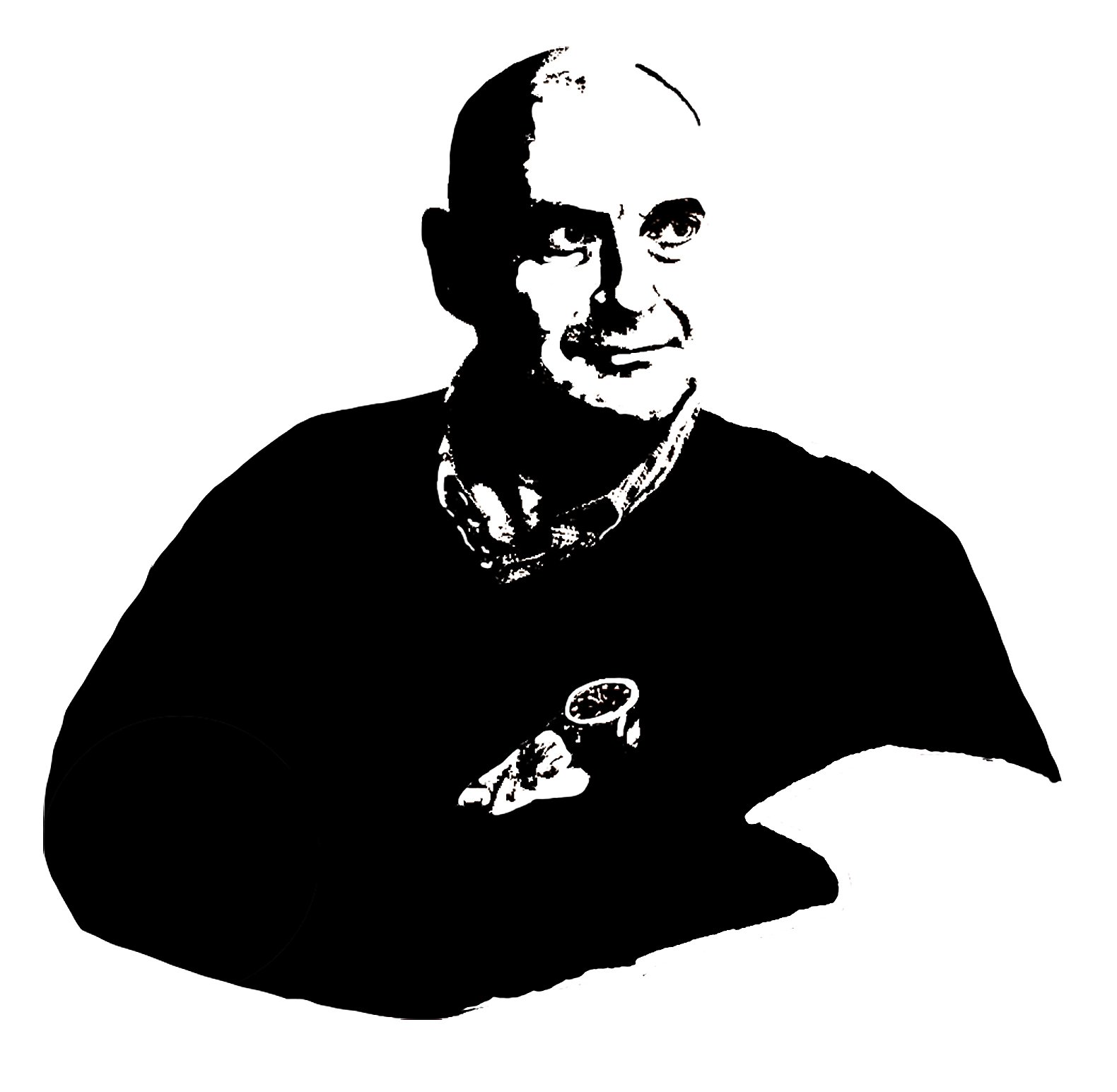
XAVIER BOSCH
The novelist Xavier Bosch affirmed that “Sant Jordi is the best spot to promote Catalonia. Not even the most prizewinning publicist would have dreamt up a more effective advert.”
Xavier Bosch was born in Barcelona in 1967. Author of the novels Nosaltres dos (2017), Algú com tu (2016), Eufòria (2016), Se sabrà tot (Sant Jordi Award in 2009 and best-selling book of 2010) and Homes d’honor (2012). Previously, he had published the compendiums of short stories Jo, el simolses (1992) and Vicis domèstics (1998), and the short novel La màgia dels reis (1994). A long-time journalist, he has been the creator of successful audiovisual formats such as Alguna Pregunta Més, El món a RAC 1 or El gran dictat. He has been head of programs of RAC1, director of Avui, director of de documentary La fleur and director of Àgora of TV3. He is currently a columnist and member of the editorial board of Ara.

